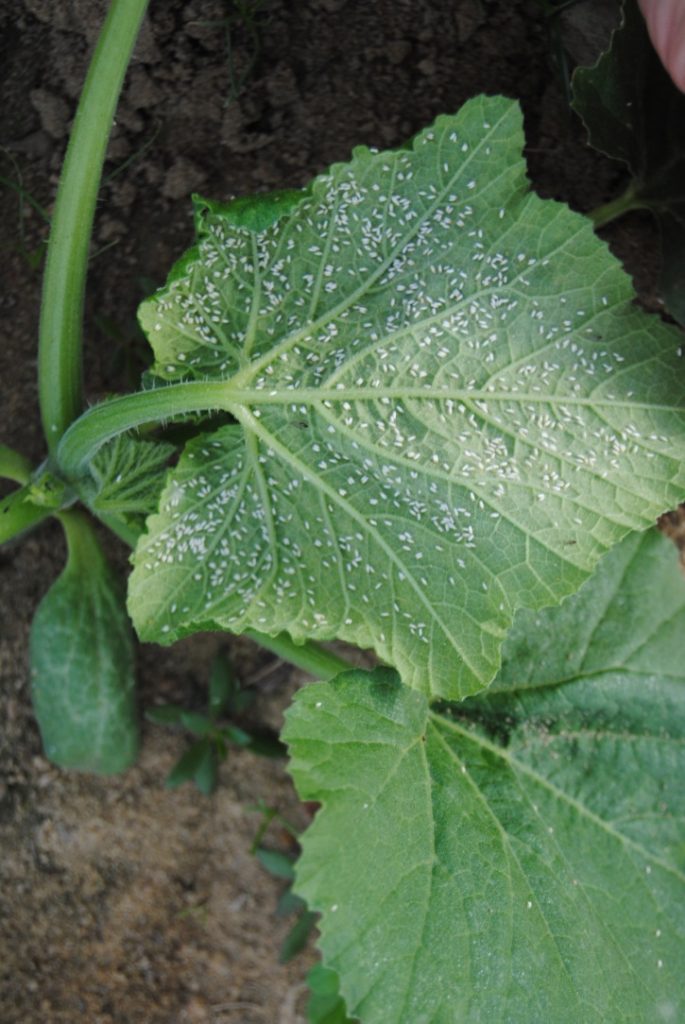By Clint Thompson
Dry weather in the Southeast is inevitable. Those conditions could bring a resurgence of whitefly pressure, says Roy Morris, senior technical sales rep at Bayer.

“When it’s wet, although your plants are lush, you start getting some fungi and things that’ll naturally occur and take out the (whitefly) populations. When it’s hot and dry, they can turn it on real good, and when your crop is irrigated and it’s lush and green and everything else is starting to wilt down, they’re coming,” Morris said.
The buildup of whiteflies concerns growers because they feed on vegetables and transmit two viruses: cucurbit leaf crumple virus and cucurbit yellow stunting disorder virus. Vegetables like squash, zucchini, cucumber, cantaloupe and snap beans are highly susceptible to these viruses.
“Here in South Florida especially, but it gets up into North Florida and Georgia as well, dealing with the viruses that whiteflies transmit, whether it’s on tomatoes or it’s on cucurbits, that’s the major crux of it. Your thresholds go from five nymphs per leaf to one adult and we’re spraying,” Morris said. “You often times have low whitefly numbers, but they can all be hot and carrying the virus. Your virus levels go way up. There’s no correlation between lots of whiteflies and lots of virus. You can have lots of whiteflies and lots of virus or few whiteflies and lots of virus. You never know.”
New Preventative Measure
Bayer has recently announced an expanded label for Movento® MPC insecticide, that includes an additional 227 registered fruits and vegetables, such as tomatoes and peppers. This provides an effective, sustainable solution against whiteflies for producers in Florida, Georgia and Alabama.
“It’s the only insecticide that’s truly systemic, meaning that you can spray it on the leaves and it goes down to the roots and then comes back out in the plant,” Morris said. “Once it gets in the plant, it’s in there for several weeks. The insect or mites have to feed on it. When they’re exposed to it, it shuts down their molting process. It’s not a contact where you spray it today, and tomorrow they’re all dead. It mainly affects the nymphs and the amount of eggs the female lays. It does a fantastic job because it lasts so long of controlling that population, of reducing the numbers that are out there.”
Movento MPC’s active ingredient is spirotetramat, which is activated when ingested by insects that feed on treated plants. Movento MPC should be used preventively with two foliar applications that enable above- and below-ground protection during critical crop growth stages.
Growers should contact their local retailers or visit www.MoventoMPC.com for more information.









